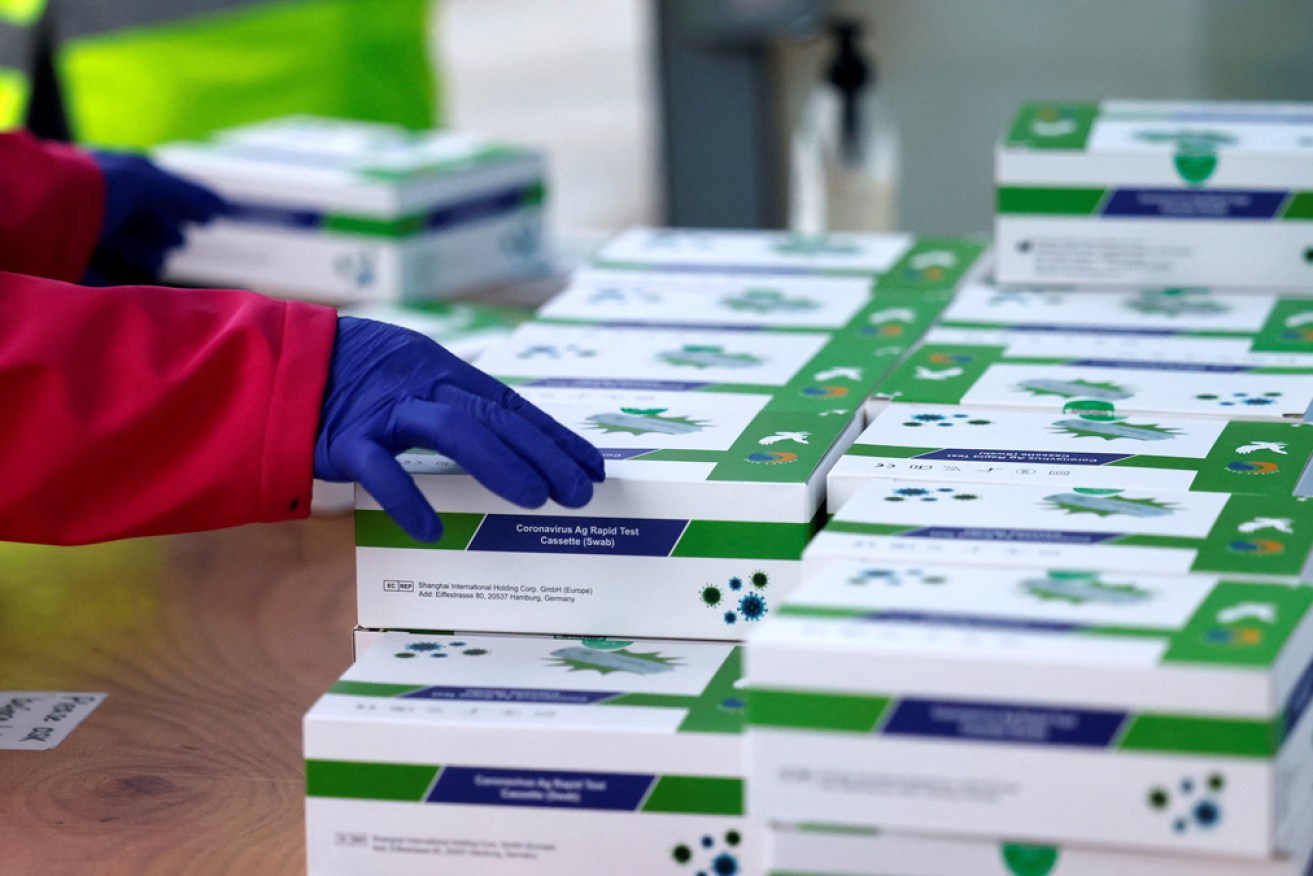Businesses ‘lying’ about missing RAT orders: Greg Hunt


The TGA has strongly defended COVID-19 rapid antigen tests in the Australian market. Photo: Getty
Health Minister Greg Hunt has accused businesses of lying about desperately needed supplies of rapid COVID tests being seized by the federal government.
There have been multiple claims from Australian businesses that they have been told by wholesalers that orders of rapid tests for workplaces have been diverted to fulfil government orders.
On Wednesday, the South Australian government also said it had asked regulators to investigate reports of its RATs had been improperly diverted to other states.
But in Canberra on Thursday Mr Hunt emphatically denied suppliers’ claims that orders of the scarce tests were being requisitioned by the government.
“They are lying. That is why I am reporting them to the ACCC,” he said.
“There are people in the market that will make statements and promises and not be able to deliver. What we are seeing is that, whether it is Commonwealth, state or territories, or community or private sector, that some suppliers have overcommitted and not been able to deliver.”
There have been multiple reports in recent weeks, as Australia’s Omicron outbreak has spiralled and the PCR testing system began to buckle, that business orders of the crucial saliva tests were failing to arrive – despite being paid for in full.
Last week, Queensland Rail said it had been told an order of 20,000 tests would not be fulfilled, while a Victorian business said it had been told its bulk order for its staff had been seized. On Thursday, Queensland Transport Minister Mark Bailey said Queensland Rail had had a second order requisitioned.
Retailers such as Werko, Star Hygiene and HiCraft have also blamed federal government requisition of RATs on arrival in Australia for delays in filling orders, according to a report in the Financial Review on Wednesday.

A statement on medical supplier Werko’s website on Thursday. Image: Werko.com.au
SA Premier Steven Marshall also said he had written to Australian Competition and Consumer Commission boss Rod Sims asking him to investigate reports some tests bound for his state had been improperly diverted.
He said the NSW and Victorian governments had denied requisitioning tests at Sydney and Melbourne airports.
“If these allegations prove correct, it’s quite possible that they are illegal, anti-competitive and, of course, they’re a massive kick in the guts for South Australia,” Mr Marshall said.
But Mr Hunt said there was a global shortage of the crucial tests, and some suppliers were making wild claims.
He said the Commonwealth had supplied 6.1 million tests to aged care, and was beginning supply them to states and territories.
“We are expecting to see 60 million movements in Australia over the coming weeks for the Commonwealth, state and community purposes,” he said.
Tweet from @DanielAndrewsMP
Speaking after Thursday’s national cabinet meeting Prime Minister Scott Morrison also said reports of test orders being requisitioned were “categorically untrue”.
“If you’re being told by a supplier that you cannot get those rapid antigen tests because the Commonwealth government has redirected it, that is not true. Get them to tell you the truth,” he said.
Victoria announced on Thursday it had ordered a further 166 million rapid tests, on top of a bulk order for 44 million tests earlier this month.
NSW this week increased its order of rapid tests to 150 million as it planned for surveillance testing of 1.3 million school students with the beginning of the school year.
The federal health department said there were still constraints with access to rapid tests, but supply was expected to normalise in coming weeks.
Despite this, the national president of the Pharmaceutical Society of Australia, Chris Freeman, said supply was expected to be scarce until at least February. Even after that, he said there would still be many issues for pharmacies.
“This ongoing predicament with rapid antigen tests continues to place huge pressure on the profession,” he said.
“In the meantime, our pharmacists are working around the clock to source their own supply of these tests, whilst juggling a huge number inquiries from patients about stock availability.”
Elsewhere, the head of the Therapeutic Goods Administration, John Skerritt, said the expanded use of rapid antigen tests had also brought issues of companies making false claims about approval.
“We have had a lot of trouble with companies making false claims, for example, they’ve submitted applications to us when they haven’t even put in an application for approval,” he said.
“We’ve had issues of falsified letters of approval … it’s out and out a forgery.
“While we’ve got a lot of companies doing some really good work getting their product out there to supply chains, there are some who are clearly doing the wrong thing.”
Some of those complaints had been referred to the police, Professor Skerritt said.
-with AAP








